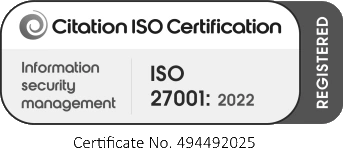The COVID-19 pandemic triggered a rapid shift in the way people work. Many organisations needed to adapt at pace and switched from traditional, office-based working, to fully remote or hybrid working (a blend of office and remote working). In healthcare, the pandemic accelerated the transition of many services from traditional, face to face appointments to virtual consultations.
These new ways of working have created numerous benefits, particularly the opportunity for an improved work-life balance for staff. However, there is growing recognition that these changes have also created a new set of challenges for organisations to navigate.
Which of these challenges sound familiar for your organisation?
The most common challenges we see our clients face include:
· Expensive, empty office spaces: Traditional offices that allocated one desk per individual are no longer being used at full capacity, resulting in underused estate and excessive overheads.
· Difficulty encouraging staff into the office: This can be due to a range of problems, such as:
o Staff seeing little value in coming into the office (especially if their diaries have a full schedule of virtual meetings).
o Where roles or activities are best delivered in the office, this is not supported by a formal hybrid working policy or HR processes.
o Poor role-modelling by some managers who prefer to work fully remote.
o Unsuitable environments, such as a lack of collaborative and private spaces.
· Managing hotdesking areas without a booking system: Some organisations have adapted their offices to set up hotdesking, but often this has not been accompanied with an effective and efficient booking system, leading to uncertainty amongst staff about desk availability.
· Technology not fit for purpose: Lack of the necessary technology to enable ‘anywhere working’.
· Questions of fairness: Inconsistent approaches being used by managers either mandating their teams do, or don't, have to come into the office is leading to resentment and feelings of unfairness.
· Lack of trust and concerns about staff productivity: Performance management arrangements have not transitioned from managing by presence to managing by out puts.
So, what can be done to overcome these challenges?
To better understand the problem and develop the best solutions, it can be helpful for organisations to assess the maturity of their hybrid working model by considering three key components:

At the core of this work, a strong change management approach is needed to win the hearts and minds of staff to support them in making the transition to new ways of working. Achieving a successful transition requires all levels of the organisation to actively participate in driving this shift to ensure its sustainable implementation.
How can Clarity help?
We have successfully supported clients to overcome their hybrid working challenges and implement effective solutions by using a four-phased approach:

To find out more about us and how we can help, please contact us.













